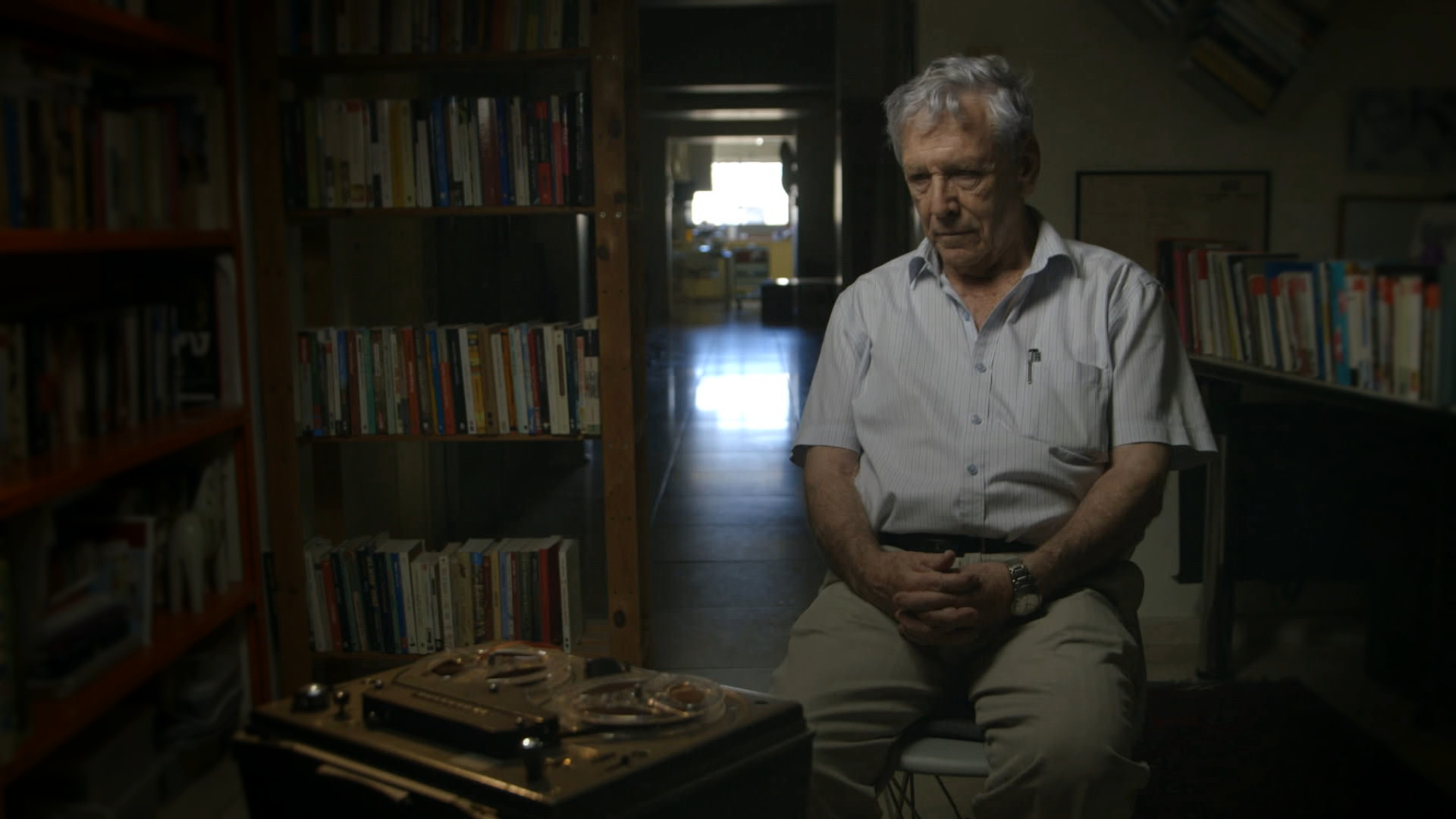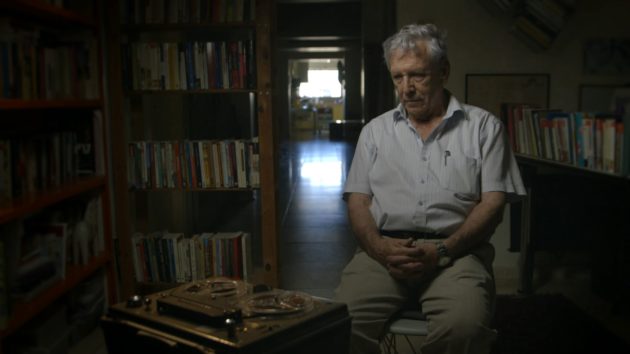
“Censored Voices”: Intimate Conversations with Six-Day War Soldiers in a New Film

Amos Oz in “Censored Voices”
Perhaps it was her persona—a young woman utterly pure, idealistic and determined—that convinced Avraham Shapira to entrust Mor Loushy with the 200 hours of soldiers’ interviews from the Six-Day War, tapes that had remained in his closet for nearly 50 years. The tapes, sealed by the Israeli Army, hold the voices of kibbutzniks recorded immediately after the ’67 war, expressing their sadness and pain at what they felt was an uncomfortable turning point for Israel. Their voices undermine the mythic triumphalism of the Six-Day War.
Shapira and Amos Oz—the young kibbutznik who grew into the eloquent novelist— tapped into the raw anguish soldiers fresh from victory could not speak about to wives, lovers, friends. Within months, Shapira had transcribed the tapes into The Seventh Day: Soldiers Talk about the Six-Day War. The Israeli Army censored 70 percent, but even the highly redacted publication created a sensation. But gradually the reaction faded. Pride in the David vs. Goliath heroics triumphed as an essential part of the Israeli mythos.
Over the decades, Shapira was approached by those who would make the tapes public, but, in the words of Loushy, now 33, “he continued to protect the intimate conversations.”
In her 20s at the time, with only one film to her credit as director, Loushy pursued the keeper of the tapes. “I wouldn’t take no for an answer,” she said in a Skype interview from Tel Aviv. When she finally approached Shapira at a university lecture, he was ready to trust her, and invited her to his kibbutz. He handed over the tapes, giving her total freedom to create her documentary. It took her three years.



